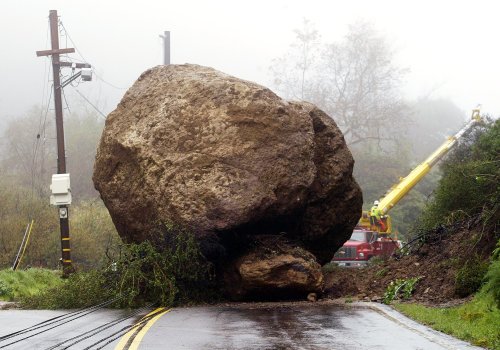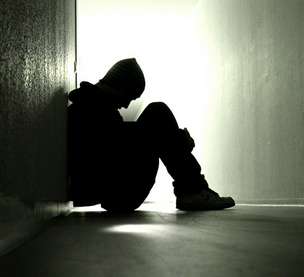How to Smash 4 Roadblocks That Prevent You from Writing
Today’s guest post is by author Todd Matthews.
Fear is instilled in us, and, for some, as we age our fear deepens. Perhaps we’re so used to fear as a companion, we know it better with each passing day, month, and year.
Some of us might be afraid of failing, so if we don’t try we can’t fail, right?
But if we don’t try, we can’t succeed.
Whatever the fear, remember success resides on the other side. Think of fear as a mountain climb. The higher you climb, the more you’ll conquer. Once you reach the peak, you’ve succeeded in your challenge, and a sense of elation will rush through you. You conquered fear and smashed another roadblock.
Below are four roadblocks fueled by fear preventing us from writing:
- Procrastination
- Judgement
- Rejection
- Failure
Procrastination
Procrastination is fear. How many times have we told ourselves we’ll do something out of our comfort zone—in this case writing—only to hold off?
Each day we wake up with great intentions, setting aside time, knowing what we want to write, and even setting up a Word document before heading off to our day job so we have zero excuse when six o’clock rolls around.
Once we arrive home, we’ll do everything it takes not to write as we had planned earlier.
We’ll say work was too much and we can’t think. We’ll claim our house or apartment needs cleaning, and it’s spotless. A few coworkers may have invited us to go out after work, and we prioritize it before our writing.
The list of excuses is endless, and procrastination is to blame.
The truth is we’re afraid to put our thoughts onto a screen. We’re going to do anything and everything in our power to not sit and write, because we’re convinced someone’s going to be peering over our shoulder and spying on us as we write.
Or maybe someone else will use our laptop, and they’ll discover your Word document. We’re creating so many doomsday scenarios, our personal doomsday clocks have struck midnight about fifty times.
How do we get past procrastination?
Write when inspiration hits.
If you’re inspired to write in the morning, wake up an hour earlier than you normally would and write before work. You might be ready to sleep, but inspiration hits the second you do so.
By writing when inspiration calls, you’re conquering procrastination. A lot of people will hold off, stating they’ll start tomorrow, but tomorrow never comes. Write the minute you feel inspired, and tomorrow has arrived.
Judgement
We’re afraid of judgement from our writing, and I have some harsh news for you: We’re going to be judged.
If you start a blog about any topic and one of your best friends reads a few posts and disagrees with everything, you will be judged. If your works are about sensitive issues, judgement will come.
How to combat judgement?
Realize not everyone’s going to be impressed by your work. Every author on this planet, even best sellers, realize there will be people out there trolling their work.
As writers, we must accept the fact we’re going to be judged. The good news is some of our friends and most of our family will stick with us, knowing writing is our passion and we’re living it, but we will be judged.
Not everyone who started this journey with you will be there at the end. Few will meet you at the peak. You can’t let this worry you, and you can’t let it bring you down.
If writing is your passion, and if you have strong views or themes, you must deliver these thoughts and calls to action into the mainstream.
Writing is powerful. Remember that while some will judge you, many more will be inspired by your work, your themes, and your messages. You’ll find like-minded people on the same mission as you.
And in time, you’ll rather have these people as friends, fans, and followers than those who judge your writing because your style and perspectives didn’t match theirs.
Rejection
Yes, we fear rejection, and it might be a key motivator for why some of us self-publish our works. We can’t be rejected if we’re indie, right?
Wrong!
If you’re an indie author, you still need to submit your book for approval in many avenues.
But even if you decide not to submit it for approval to reviewers or promoters, isn’t your book going to be rejected by the masses if sales don’t add up?
Rejection for any author, whether traditional or indie, is a no-way-out horror story, but it’s one you need to accept.
Want to invest in a reputable paid promotion? Book promotion services are selective regarding which books they promote. Look at Bookbub, the ultimate goal for all authors. They select ten percent of all submitted books.
Want good reviews? I hope you took the time to write, edit, rewrite, edit again, and repeat the process several times while numerous sets of eyes saw your work.
Want sales? I hope you either designed a great cover or paid someone else to do so. Oh, and the book description better be spot-on. If not, people will buy another book, rejecting yours.
Want to get your book reviewed by ethical reviewers? I hope you learned to query and follow submission guidelines, or you’ll be rejected again.
The best way to get around rejection? Like judgement, rejection is a no-way-out horror story.
Again, your work isn’t for everyone. Also, rejection isn’t always bad. You might get rejected because your work doesn’t meet a current need, or whomever you’re submitting to may not accept the type of work you submitted. Or, they may’ve accepted a similar work twenty-four hours ago.
Rejection doesn’t mean the doomsday clock hit midnight.
What’s important is that you’re submitting.
Failure
Failure is the ultimate fear that keeps people from trying.
Ask yourself how you’ll feel twenty years from today if you failed to go after your ambitions due to fear of failure.
We know plenty of people living in chronic pain of regret because they may have had talent in a field but never pursued due to this fear. We’ve heard the stories. It could even be a parent or grandparent, anyone telling us fear of failure held them back.
How do you combat fear of failure? Like judgement and rejection, know failure is inevitable and it’s going to happen.
But, there’s good news. Realize failure is another step closer to success because you found a method that doesn’t work, which means you can cross it off the list. You can move on without trying failed methods again.
Know that failure leads to success. When I experience failure, I smile. I’m glad I failed.
Why? Because I found what doesn’t work, and that means I’m another step closer to finding what does work. And so will you.
Think of failure as process of elimination, because in many ways that’s all it is. You’re finding what creates success, and when you find the success formula, you’ll be unstoppable.
Conclusion
Fear loves to stick its head out of the ground every time we embark on something new. Even if it’s something we’ve always wanted to do, fear will tell us time and again why we can’t, or why we shouldn’t.
For many of us, fear creates mental roadblocks, but we must remember to look beyond our fears. Don’t allow fear to control you.
Instead, think of what you can do when you break down mental roadblocks. For each roadblock you conquer, you’re another step closer to moving in the right direction. The direction in life you’ve always wanted to take.
They say success lies on the other side of fear. In my own experience, such proclamation is one hundred percent accurate.
 Todd Matthews is the author of the new adult urban fantasy Northern Knights, Book One in the Lord of Columbia Series. You can follow him on Facebook and Twitter.
Todd Matthews is the author of the new adult urban fantasy Northern Knights, Book One in the Lord of Columbia Series. You can follow him on Facebook and Twitter.












You know what is strange? I actually welcome “judgement” or if a person does not like my writing. Even if they “troll” me. I would like bad judgement better than somebody completely ignoring my work. For readers to say that my writing is mediocre. A famous person once said “There is no such thing as bad press” They said that if the tabloids write bad things about you, not to worry. You need to worry when no press is talking about you. That you are invisible. If someone hates my work and tells me about it, I know I reached somebody. Somebody saw my work and took the time out of their life to tell me how much they hate it. Yes some bad reviews might hurt, bu I would be even more worried if I saw no reviews or 3 star “It was okay” reviews.
Ever heard of “don’t quit your day job.” I often wonder about writers that love to write and the only block is: where do they get the energy after working 10 – 12 hour days, or even the lucky ones with 8-hour days, but with family responsibilities? Please tell me your secret. The stories are in my head, but where is the energy bank I can dip into?
You are not alone, Gil. It’s rare when someone has the luxury to write every day and not be burdened by lots of other responsibilities. My husband is in the bedroom, practicing his sax. He works 60 hours a week and is trying to get back into playing music professionally (he’s an electrician). We all have to find and make time to do what we love. Toni Morrison raised two boys as a single parent working two part-time jobs. She’d get up early before dawn and write, then cram in an hour here and there on the weekends. We do what we can for the things we love to do.